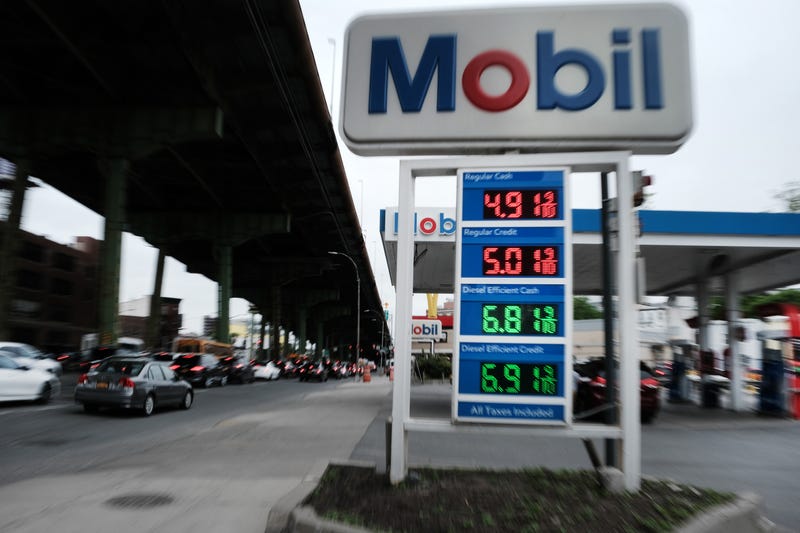
Buffalo, N.Y. (WBEN) - Inflation continues to be a growing concern in America. A June poll from the Associated Press-NORC Center for Public Affairs Research shows that forty percent of U.S. adults specifically name inflation as one of up to five priorities for the government to work on in the next year.
"Economists have followed this topic for a long time and the number one relationship is with gas prices," said SUNY Buffalo State economics and finance professor, Fred Floss.
"We've seen gas prices go from $1.30 a gallon during the pandemic, now up to close to $5. So it's an obvious thing that people who buy gas every day, notice very quickly. So while other inflation may change, gasoline prices are the major issue for most Americans."

With recent news regarding recent mass shootings plaguing our nation and the historic Supreme Court decision to overturn Roe v. Wade, it seems like government officials have put inflation on the backburner but, government has ways to act to slow inflation.
"One way that the government can address inflation is to raise interest rates. The government's trying to take money out of the economy by buying bonds, and therefore, the Federal Reserve, sells bonds and takes money out of the economy, to slow the economy down. That will start to slow inflation, but the flip side of that is that we're likely to go into a recession. People are likely to lose their jobs," said Floss.
Economists are continuing to look at trends.
"We start to look at all the reasons we have inflation. We had the pandemic and all of the supply chain issues. We had a number of unfortunate closures of things like the production plants in the Midwest, for chicken and beef. We've had gasoline plants being closed down, that are producing gasoline. So all of these things have happened at once to cause this inflation," Floss said.
"As all of this starts to unwind, inflation is going to come down naturally. The President, whoever it is, is going to be able to take credit and the reality is, is that the President has very little to do with any of this. As we move forward, we're going to have to look to make sure that the economy grows and moves to its new equilibrium. After the pandemic, after the Ukrainian war, we're moving to a new place and that's going to take some time, and there's going to be a lot of pain for everyone."
The professor says we shouldn't necessarily worry about recession.
"Economists look at this a little bit differently. Recessions are not necessarily a bad thing because companies that essentially shouldn't be operating are operating now because interest rates were too low and inflation was low. So they were able to make decisions that allowed them to continue, when they probably shouldn't have continued. So what's happening now is we're seeing sort of in a glut, a lot of companies that would have gone out of business over the last three years, start to go out of business all at once and that's causing a lot of concern," Floss said.
"What that's going to do and what we have to worry about and what the government has to worry about, is now that these companies are going out of business. What's going to happen to unemployment? Particularly to those that maybe don't have the skills to move somewhere else. We're already seeing that with Tesla laying off a couple hundred people with Caterpillar and others moving and laying off a lot of upper level management. So this is going to be difficult not just for those at the lower end of the economy, but a lot of white collar workers that think that they're not going to be affected. by this recession and this inflation, so it's going to be difficult for everybody."
A recession is currently not here yet, but it seems the economy is moving towards a new equilibrium. When can we expect a recession?
"A recession is defined as six months of negative GDP growth. So from our normal definition, the economy isn't in a recession yet. Last quarter, we saw negative growth, but we also see very strong employment numbers that came out today. So that we're really getting mixed signals on where the economy is," says Floss.
"It's very likely then that the Federal Reserve is going to row raise interest rates again, which isn't necessarily a bad thing. Particularly if you're a retiree that has savings, for the first time in probably 10 or 12 years, you may actually have a positive interest rate on your savings. So we're moving to a new equilibrium. It's going to be difficult. We can't say we're in a recession yet, but a lot of economists and a lot of business people are looking at the next six months in saying we'll probably go into a recession. The question is: How bad is it going to be? I'm not sure anybody knows that at this point."

